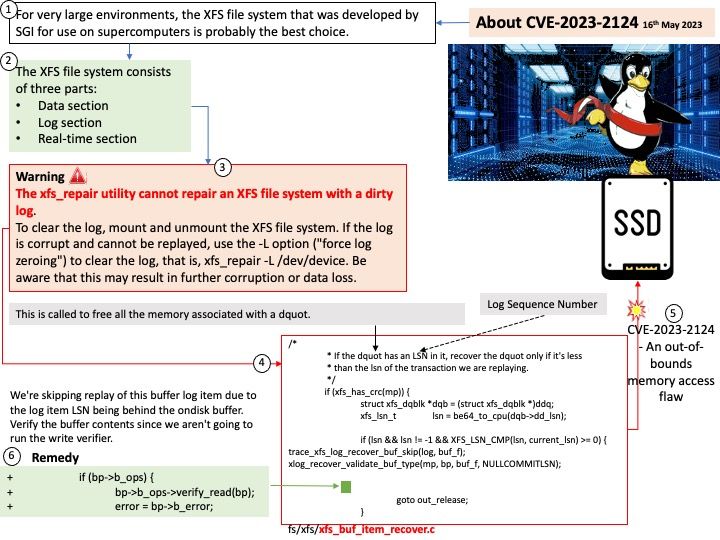
Preface: For very large environments, the XFS file system that was developed by SGI for use on supercomputers is probably the best choice.
Background: XFS consumes roughly twice as much CPU per metadata operation as Ext3 and Ext4 compared to Ext3 and Ext4. XFS is a 64-bit file system. XFS is the default file system for Red Hat Enterprise Linux 7.
XFS is well-known for its ability to handle large amounts of data with ease. By using XFS on your SSD, you can ensure that your files are safe. Solid-state drives (SSDs) are the most common storage drives today.
Vulnerability details: CVE-2023-2124 – An out-of-bounds memory access flaw was found in the Linux kernel’s XFS file system in how a user restores an XFS image after failure (with a dirty log journal). This flaw allows a local user to crash or potentially escalate their privileges on the system.
Official technical details: please refer to the link – https://git.kernel.org/pub/scm/linux/kernel/git/torvalds/linux.git/commit/fs/xfs/xfs_buf_item_recover.c?h=v6.4-rc1&id=22ed903eee23a5b174e240f1cdfa9acf393a5210